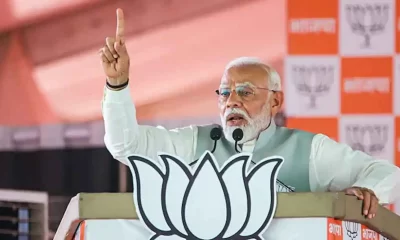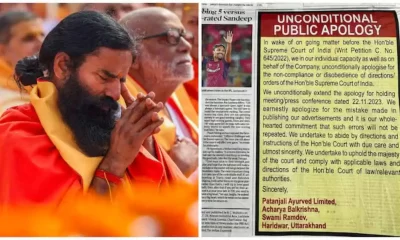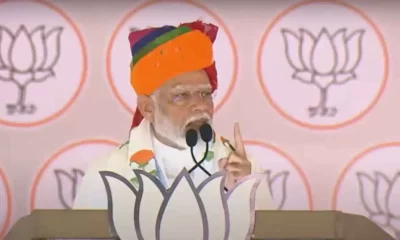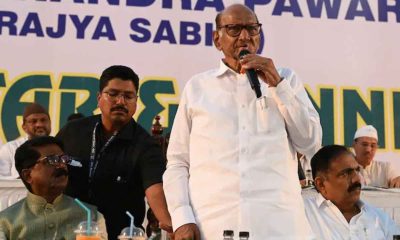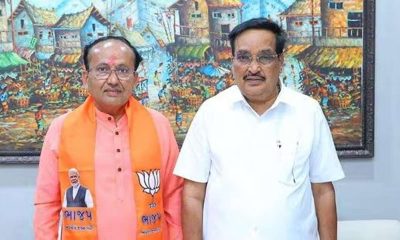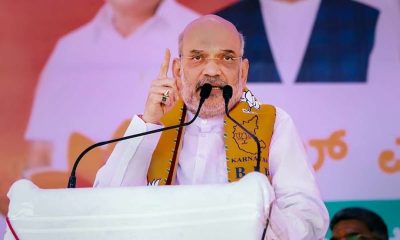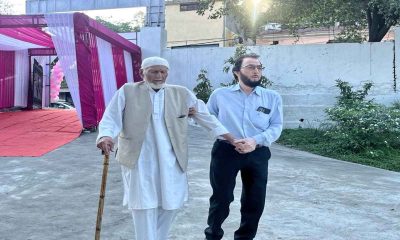India News
Supreme Court to hear petitions challenging Article 35A from Feb 26-28, J&K tense
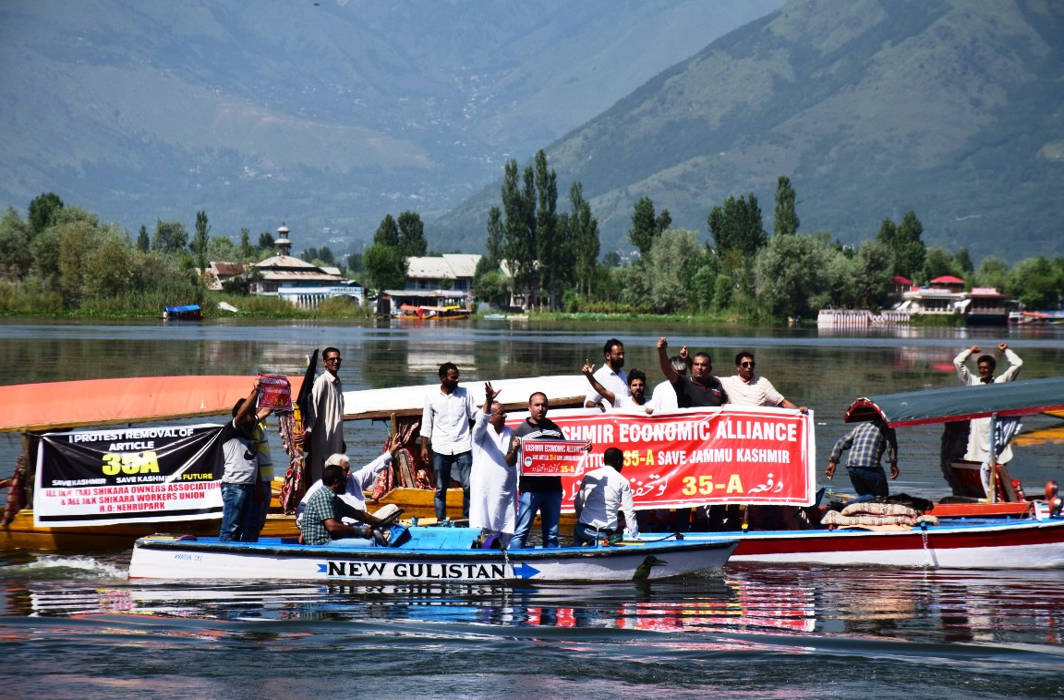
[vc_row][vc_column][vc_column_text]Petitions listed for hearing despite J&K government and Kashmiri political parties requesting for pleas to be deferred till elections are held in the state
Amid heightened tension with an ongoing crackdown by security forces and continued clashes between forces and militants after the massive February 14 Pulwama terror attack, the Supreme Court today (Monday, Feb 25) listed the hearing of pleas challenging the constitutional validity of Article 35A from February 26-28.
Article 35A (relating to the special rights and privileges enjoyed by Jammu and Kashmir) is widely seen in the state as being critical for sustaining peace, law and order in the Kashmir Valley. It empowers the J&K legislature to define the state’s “permanent residents” and bestow special rights and privileges on them.
The decision to list the petitions this week comes despite the counsels of the State, which is currently under President’s Rule, urging the top court to defer the hearing. Key political players in the State – Mehbooba Mufti’s PDP and Farooq Abdullah’s National Conference – too have repeatedly urged the top court to defer the hearings, arguing that the State must first go to assembly polls and that the government elected by the people can then decide the legal stand to be taken on these petitions.
While BJP and Narendra Modi government favour abrogation of Article 35A, viewing it as a permanent solution to Kashmir problem, even BJP ally and Peoples’ Conference president Sajjad Lone warned them against any tampering with the provision. Speaking to The Indian Express, Lone said that any change introduced to the special Constitutional character will only deteriorate the situation further in the state.
Only Narendra Modi can give reply to Pakistan: Amit Shah
Lone said that the if the Centre decides to fiddle with Article 35-A, it will be slaughter of the mainstream thought in the Valley. “You have to understand that these are Articles of trust, Articles of dignity. This is how India as a country is perceived here — will it or will it not stand by its promises? It would be the unluckiest day because that would be the death of mainstream thought here,” Lone told the daily.
“If they (Centre) want to slaughter the mainstream thought, they are most welcome but that is what they will be doing by tinkering with Article 35A,” he added.
The decision to hear the petitions against Article 35A comes at a time when the BJP-led Union government of Prime Minister Narendra Modi is under renewed pressure from the Hindu right-wing to take a firm stand in favour of the prayer to abolish the special status granted to J&K under the Constitution.
The Centre has, traditionally, been neutral on petitions that have challenged Article 35A and Article 370. However, abolition of these Articles has been high on the political agenda on the BJP and a long-pending election manifesto promise of the saffron party.
Oscars 2019: Period. End of Sentence bagged Best Documentary Short, Complete list of winners
In wake of the Pulwama terror strike, the Hindu right has once again become vocal in its demand for the Articles to be abolished and there have been indications that the Centre might finally take a decision that reflects the sentiments of its vote bank.
The Article has been criticised by the BJP as a provision that encourages alienation, deepens the concept of a separate identity and creates a political gap between J&K and the rest of India. “Article 35A is a constitutional mistake. It was incorporated through a presidential order and not through the parliamentary process,” said Surinder Amabardar of the state BJP last year.
Those in favour of retaining Article 35A fear that its repeal would lead to further erosion of J&K’s autonomy and trigger demographic change in the Muslim majority valley. Some political parties say the Kashmir resolution lies in greater autonomy, even as separatists fan paranoia about the possibility of Hindus ‘flooding’ the valley.
On Sunday, J&K governor Satya Pal Malik issued a statement urging people not to spread rumours and remain calm after the state administration issued many orders including supplying ration at the earliest, cancelling leave of doctors and policemen, rationing of petrol to the general public, leading to a war hysteria. The widespread arrests of Jamaat-e-Islami cadres and separatists contributed to these rumours.
Article 35A was added to the Constitution through a presidential order in 1954. The law prohibits non-permanent residents from a permanent settlement in the state, acquiring immovable property, government jobs, scholarships, and aid. Some also argue that the Article is discriminatory against J&K women as it rules out their state subject rights if they married non-permanent residents.
Journalist Priya Ramani gets bail in defamation case filed by MJ Akbar
[/vc_column_text][/vc_column][/vc_row][vc_row][vc_column][vc_column_text css=”.vc_custom_1551096653889{border-top-width: 10px !important;border-right-width: 10px !important;border-bottom-width: 10px !important;border-left-width: 10px !important;padding-top: 10px !important;padding-right: 10px !important;padding-bottom: 10px !important;padding-left: 10px !important;background-color: #c6c6c6 !important;border-radius: 10px !important;}”]Article 35A is a unique provision of the Constitution of India. It is a part of the Constitution, but does not figure in the bare Act! One does not find Article 35A after Article 35 in the Constitution. Article 35 is followed by Article 36. But, 35A can be seen in Appendix i of the Constitution. It was conceived exclusively for the benefit of the State of Jammu and Kashmir through a Presidential Order issued in 1954. It empowers the Jammu and Kashmir State Legislature to define the State’s ‘permanent residents’ and their special rights and privileges. It was specially devised to save the State subject laws that had already been defined under the Dogra ruler Maharaja Hari Singh’s regime and notified in 1927 and 1932. However, this Article which came into force in 1954 without a place in the bare Act of the Constitution was unknown to the public. It came into limelight only when cases were filed in the apex court challenging its validity, thereby raising an intense debate.
TEXT OF THE ARTICLE: ‘35A. Saving of laws with respect to permanent residents and their rights –
Notwithstanding anything contained in this Constitution, no existing law in force in the State of Jammu and Kashmir, and law hereafter enacted by the Legislature of the State
(a) defining the classes of persons who are or shall be permanent residents of the State of Jammu and Kashmir; or
(b) conferring on such permanent residents any special rights and privileges, or imposing upon other persons any restrictions, as respects
i.Employment under the State Government;
ii.Acquisition of immovable property in the State;
iii .Settlement in the State; or
iv.Right to scholarships and such other forms of aid as the State Government may provide shall be void on the ground that it is inconsistent with or takes away or abridges any rights conferred on the other citizens of India by any provision of this Part’.
[/vc_column_text][/vc_column][/vc_row][vc_row][vc_column][vc_column_text]Farooq Abdullah, his son Omar Abdullah and Mehboona Mufti – all former chief ministers of J&K – have gone on record with their opposition to any attempt that will dilute Article 35A and Article 370.
In a series of tweets late Sunday, Mufti said:
“Valley rife with speculation about status of Article 35. Before taking a decision, GoI must consider –
- J&K was the only Muslim majority state that chose a secular India over Pak during partition. 2. Article 370 is the constitutional connection between J&K & Indian Union.
- Instrument of accession is contingent on Article 370 which is inextricably linked to Article 35 A.
- Any tampering will render Treaty of Accession null & void.
- Those frothing at the mouth & calling for its removal shouldnt blame Kashmiris for the developments that will follow such a hare brained decision.” (sic)
Reacting to the listing of the petitions in the Supreme Court from February 26 to February 28, and to unsubstantiated reports that the Centre might take a stand against the continuance of Article 35A, Omar Abdullah told reporters: “The Centre and Governor have only one responsibility right now and that is to hold elections. So, hold elections, let people take the decision, the new government will itself work towards safeguarding Article 35A.”
In October 2002, the J&K high court held that women married to non-permanent residents will not lose their rights. The children of such women however don’t have succession rights.
An NGO, We the Citizens, challenged 35A in the SC in 2014 on the grounds that it was not added to the Constitution through an amendment under Article 368. It was never presented before Parliament, and came into effect immediately, the group argued.
In another case in the SC last year in July, two Kashmiri women argued that the state’s laws, flowing from 35A, had disenfranchised their children.
Arunachal govt dumps permanent residency move after violent protests, calls meeting with NGOs, pol parties
Responding to their plea, the apex court sent notices to the Centre and state in July 2017. Advocate General K Venugopal told the bench of the then Chief Justice of India (CJI) J S Khehar and Justice D Y Chandrachud that the petition against Article 35A raised “very sensitive” questions that required a “larger debate”.
On May 14, 2018, the SC deferred hearing on the petitions challenging Article 35A. The Centre told the bench that the matter is very sensitive and since the interlocutor is making efforts for a solution, the court should not pass any interim order at present as it would be counterproductive.
Representing the J&K government, advocate Rakesh Dwivedi said SC has already settled the issue by ruling that Article 370 of the Constitution has already attained permanent status. “In any event as the issue required interpretation of various constitutional provisions, let there be no interim order,” Dwivedi appealed to the bench.
Senior advocate Ranjit Kumar, counsel to a petitioner, countered and said: “It is a strange situation in J&K as persons from Pakistan can come and settle in the state under a law but those who have been staying for generations cannot even get a government job.”
The SC then deferred the hearing to August 6 then again to August 27 and then August 31, 2018.[/vc_column_text][/vc_column][/vc_row]
2024 Lok Sabha Elections
Lok Sabha elections 2024: 102-year-old man walks to polling booth to cast his vote in Jammu
The lowest voter turnout so far was noted in Ramgarh at 1.53%.
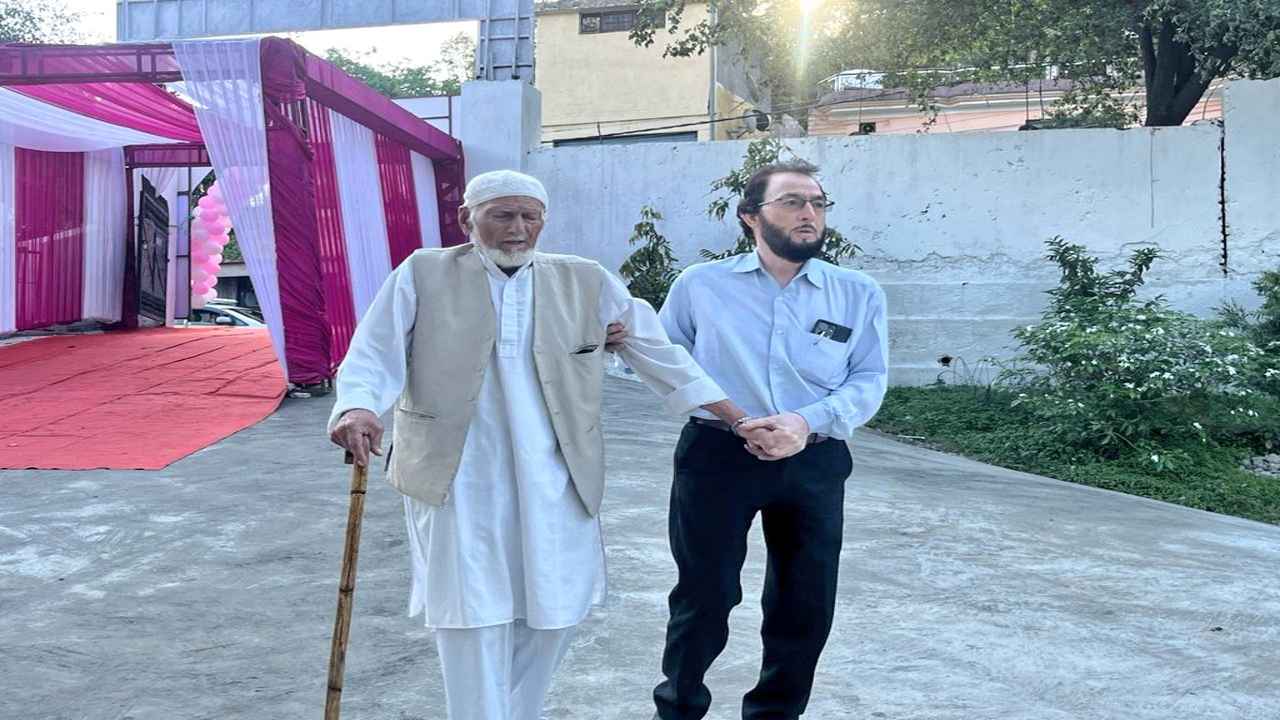
A 102-year-old man showed up at a Jammu polling place to cast his vote in the second phase of the Lok Sabha elections on Friday. Haji Karam Din arrived at the Reasi district polling place in the Jammu constituency with a walking stick in hand and a family member who assisted him with the pre-voting process.
Haji Karam Din, who is 102-year-old, showed his inked finger and posed for pictures outside the polling booth after casting his vote. He said voting at this polling place at this age makes him very happy. He has always cast his vote. Even at the age of 102, this experience is still ongoing, he said.
Reasi district is a part of the Jammu parliamentary constituency, and 22 candidates are up for vote with around 17.81 lakh eligible voters.
BJP’s sitting member Jugal Kishore Sharma is aiming for a third term in office following wins in the elections of 2014 and 2019. Former minister and Congress candidate Raman Bhalla is his main opponent.
Voting in the Jammu-Reasi Lok Sabha constituency began with eager voters showing up at the polling places. Some of them were wearing traditional Dogra attire.
In 2,416 polling places around the constituency, voting got underway at 7 a.m., and 10.39% of the total votes were cast by 9 a.m. In the 2019 Lok Sabha elections, Jammu recorded a 74% voter turnout.
Following the repeal of Article 370 and the division of the former state into two Union Territories five years ago, this is Jammu’s first significant election.
The Akhnoor segment received the highest percentage of votes, 14.24%, followed by Reasi (14.13%), Gulabgarh (13.53%), Shri Mata Vaishnodevi (12.71%), Marh (12.31%), Samba (8.56%), R S Pura Jammu South (8.17%), and Suchetgarh (5.67%), according to the officials. Ramgarh recorded the lowest voter participation of 1.53% so far.
Low attendance was observed in the border areas of the districts of Jammu and Samba till nine in the morning, according to poll data.
The officials said that big lines of voters were observed at several polling places throughout Jammu city. Voters were observed heading towards polling places early in the morning.
India News
Salman Khan house firing case: NIA interrogates arrested shooters Sagar Pal, Vicky Gupta for three hours
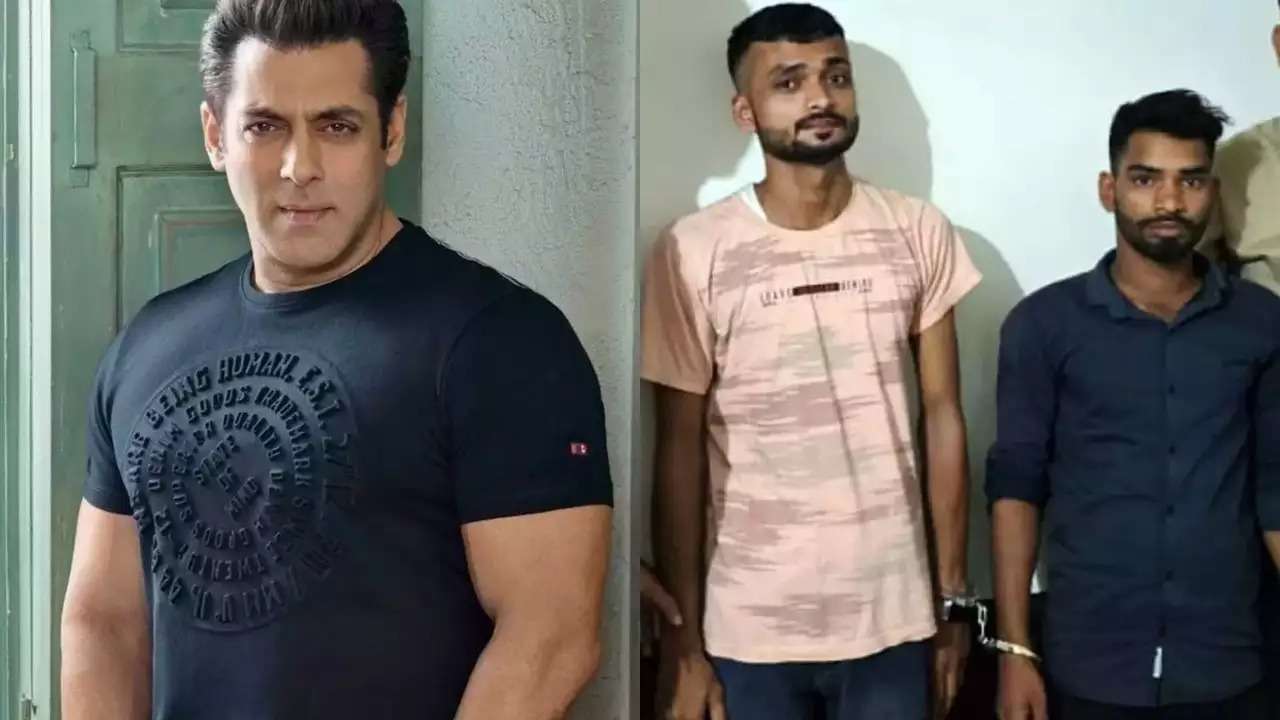
The investigation into the shocking firing incident that took place outside Salman Khan’s house on April 14 keeps bringing new updates with every passing day. In this case, Sagar Pal and Vicky Gupta, the two suspected shooters, have already been taken into custody.
The two shooters have reportedly been questioned by the National Investigation Agency (NIA), according to a new development. Every day that goes by, more information is revealed about the inquiry into the shocking firing incident that happened outside Salman Khan’s house on April 14. Sagar Pal and Vicky Gupta, the two accused shooters, are being held in custody after their first arrests.
It was recently discovered that the two shooters were questioned by the National Investigation Agency (NIA).
NIA has reportedly begun questioning Sagar Pal and Vicky Gupta, who were detained a few days ago for firing openly outside Salman Khan’s Galaxy Apartments in Mumbai, according to a recent update posted on their X (Twitter) account. NIA has interrogated shooters Vicky Gupta and Sagar Pal, arrested in the firing case, the tweet said.
According to the reports, two Punjabi residents were taken into custody by the Mumbai Crime Branch yesterday on suspicion of being involved in the recent shooting incident outside the house of Bollywood actor Salman Khan.
The two men, Sonu Subhash Chander and Anuj Thapan, provided guns to Sagar Pal and Vicky Gupta, the shooters, according to information released by the Mumbai Crime Branch. It was also reported that they had communication with the Bishnoi gang. For those who don’t know, hours after the incident, Anmol Bishnoi, the brother of gangster Lawrence Bishnoi, allegedly took credit for the firing in a Facebook post.
The shooters’ custody has been extended by Mumbai’s Esplanade Court until April 29.
Meanwhile, on the workfront Salman Khan was last seen in Tiger 3 alongside Katrina Kaif.
2024 Lok Sabha Elections
PM Modi calls for high voter turnout in second phase of Lok Sabha elections 2024, says your vote is your voice
Prime Minister Narendra Modi urges citizens to participate in record numbers during the second phase of polling for the Lok Sabha Elections 2024.
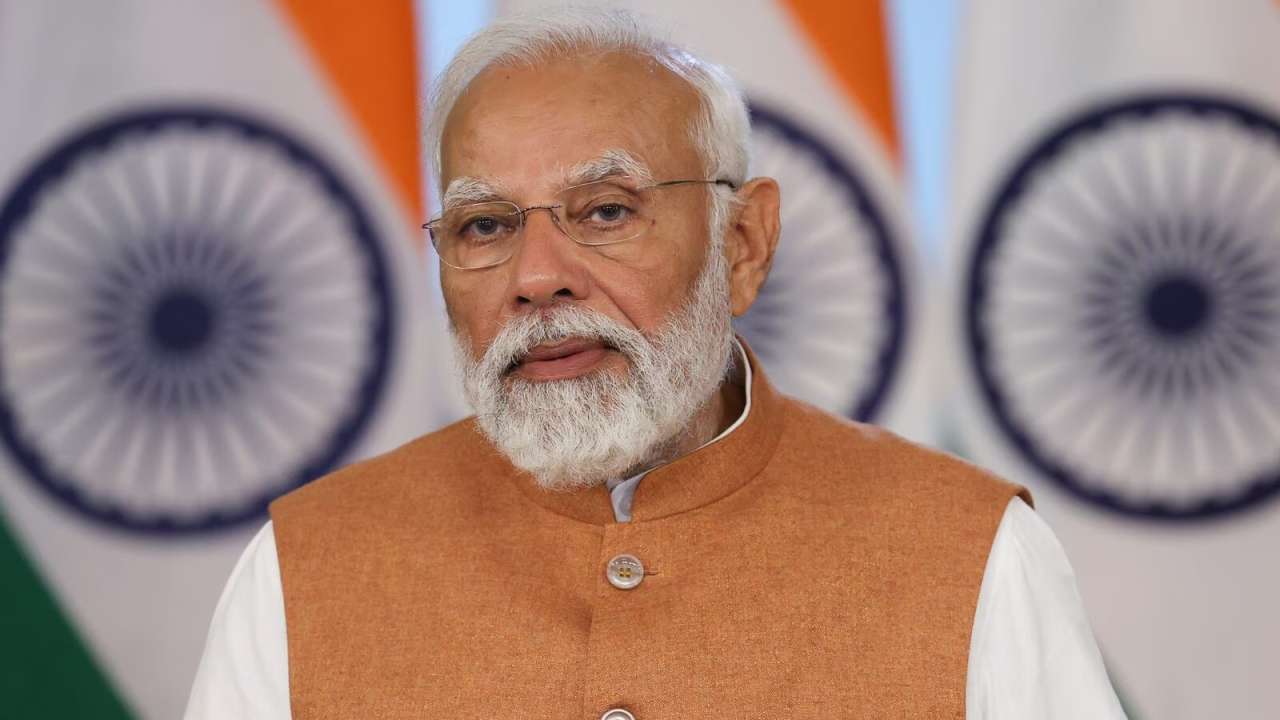
Prime Minister Narendra Modi took to social media as the second phase of voting for the Lok Sabha Elections of 2024 got underway across the country to encourage voters to cast votes in huge numbers. PM Modi emphasized in his speech the value of voting in preserving democracy and notably urged women and young people to cast votes.
Taking to social media X, formerly Twitter, PM Modi wrote, urging everyone in constituencies to participate in record numbers in today’s second phase of the Lok Sabha elections. He said our democracy is strengthened by high voter turnout. He especially urged female and youth voters to cast votes in large numbers. Your vote is your voice, he added.
It is important to remember that 88 Lok Sabha constituencies—spread among 13 states and Union Territories—are presently holding polls. Twenty seats in Kerala, fourteen in Karnataka, thirteen in Rajasthan, eight in Uttar Pradesh and Maharashtra, six in Madhya Pradesh, five in Assam and Bihar, three in Chhattisgarh and West Bengal, and one in each of Tripura, Jammu & Kashmir, and Manipur are currently up for election. Notably, the untimely death of a Bahujan Samaj Party (BSP) candidate has resulted in the Madhya Pradesh constituency of Betul being spared from voting on April 26.
Meanwhile, Chief Election Commissioner Rajiv Kumar emphasized the thorough planning that has taken place over the previous two years and reassured the public of careful security measures at every voting place. They have been preparing for the last two years, he said. At each booth, the arrangements are ready. Everything has been prepared for the voters, including fans and drinking water. Voters must turn out to cast their votes. Safety has been considered. There is zero information available anywhere regarding violence. However, there will be forces at every booth.
-

 Cricket news20 hours ago
Cricket news20 hours agoTelugu superstar Mahesh Babu meets SRH captain Pat Cummins, says it is an absolute honour
-

 Entertainment23 hours ago
Entertainment23 hours agoAamir Khan to begin shooting in Delhi for Sitaare Zameen Par next month
-
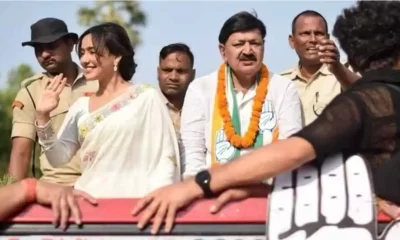
 2024 Lok Sabha Elections23 hours ago
2024 Lok Sabha Elections23 hours agoBollywood actor Neha Sharma campaigns for her father Ajit Sharma in Bhagalpur, Bihar
-
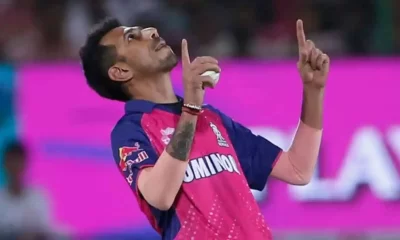
 Cricket news21 hours ago
Cricket news21 hours agoAB De Villiers criticizes RCB’s decision to let go Yuzvendra Chahal, says it was a hearbreaking moment
-
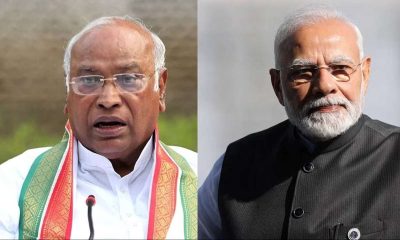
 2024 Lok Sabha Elections20 hours ago
2024 Lok Sabha Elections20 hours agoMallikarjun Kharge writes to PM Modi seeks time to explain Congress’s Nyay Patra
-
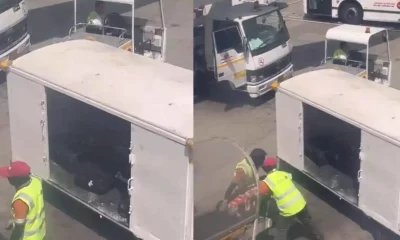
 Trending19 hours ago
Trending19 hours agoSocial media user shares video of Air India ground staff throwing expensive musical instruments, video goes viral
-
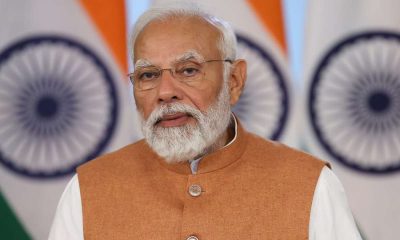
 2024 Lok Sabha Elections3 hours ago
2024 Lok Sabha Elections3 hours agoPM Modi calls for high voter turnout in second phase of Lok Sabha elections 2024, says your vote is your voice
-
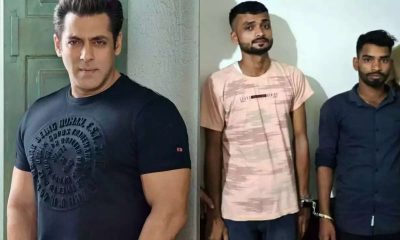
 India News2 hours ago
India News2 hours agoSalman Khan house firing case: NIA interrogates arrested shooters Sagar Pal, Vicky Gupta for three hours

